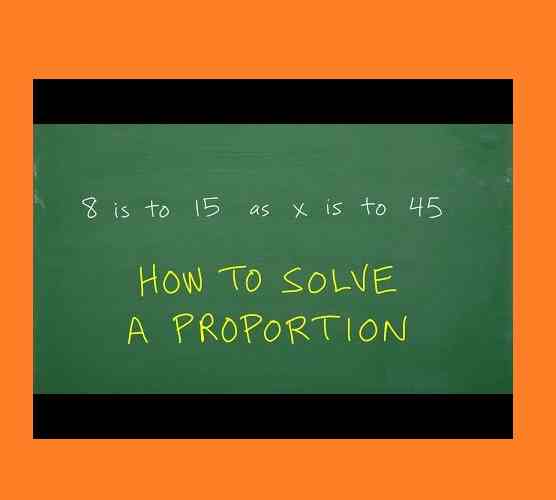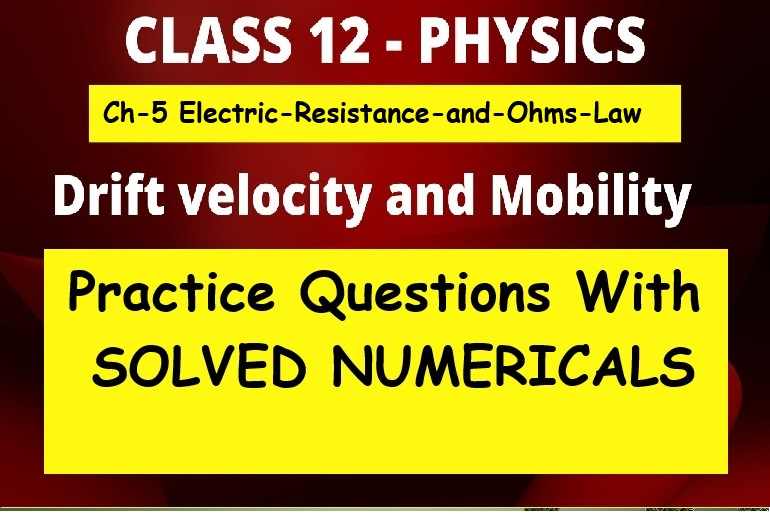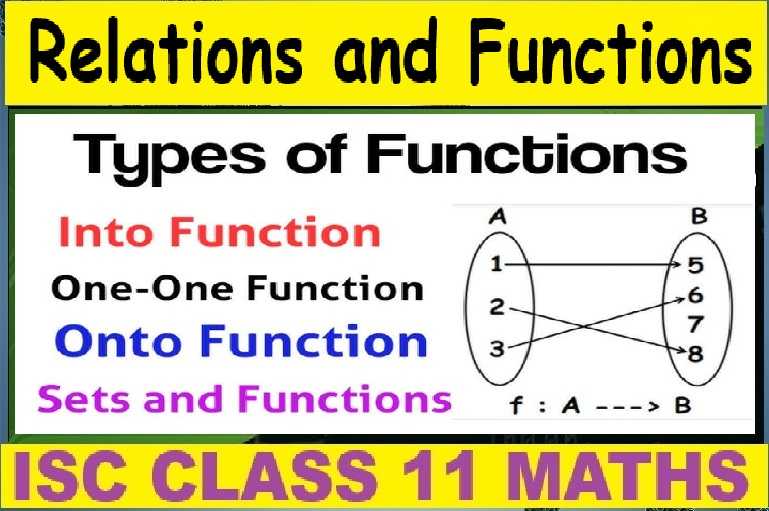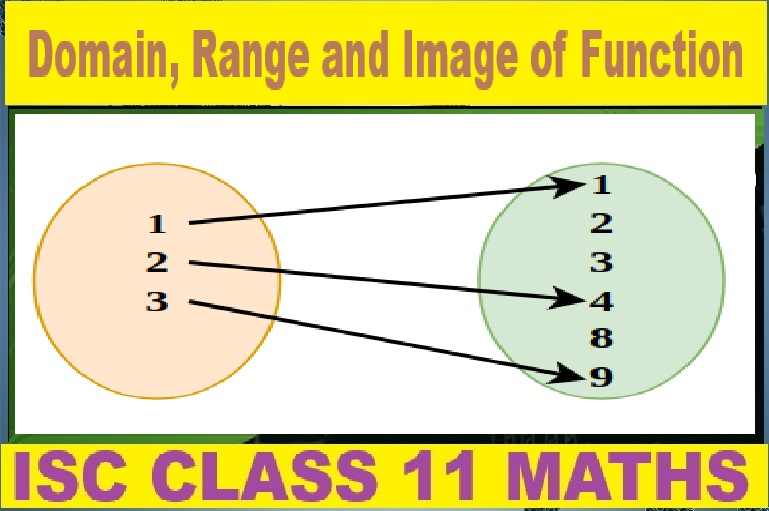Ratio and Proportion Class- 7th RS Aggarwal Exe-7 B Goyal Brothers ICSE Math Solution . We provide step by step Solutions of lesson-7 Ratio and Proportion for ICSE Class-7 Foundation RS Aggarwal Mathematics of Goyal Brothers Prakashan . Our Solutions contain all type Questions of Exe-7 B to develop skill and confidence. Visit official Website CISCE for detail information about ICSE Board Class-7 Mathematics. What is the example of proportion? What is proportion called? What is a proportion answer? What is a proportion in math formula.

Ratio and Proportion Class- 7th RS Aggarwal Exe-7 B Goyal Brothers ICSE Maths Solution
| Board | ICSE |
| Publications | Goyal brothers Prakashan |
| Subject | Maths |
| Class | 7th |
| Chapter-7 | Ratio and Proportion |
| Writer | RS Aggrawal |
| Book Name | Foundation |
| Topics | Solution of Exe-7 B |
| Academic Session | 2023 – 2024 |
What is the example of proportion?
In the first century, a Roman architect named Vitruvius studied proportion. He believed that the human body was aesthetically, the best example of proportion.
What is proportion called?
Proportion, in general, is referred to as a part, share, or number considered in comparative relation to a whole. Proportion definition says that when two ratio are equivalent, they are in proportion. It is an equation or statement used to depict that two ratios or fractions are equal.
What is a proportion answer?
If two or more ratios are equal, then it is said to be in proportion. The proportion can be represented in two different ways. Either it can be represented using an equal sign or by using a colon symbol.( i.e) a:b = c:d or a:b :: c:d.
What is a proportion formula?
A proportion is an equation in which two ratios are set equal to each other. For example, if there is 1 boy and 3 girls you could write the ratio as: 1 : 3 (for every one boy there are 3 girls) 1 / 4 are boys and 3 / 4 are girls.
Exercise – 7 B
Ratio and Proportion Class- 7th RS Aggarwal Goyal Brothers ICSE Maths Solution
1. Which of the following statements are true ?
(i) 51 : 68 = 85 : 102
Solution: 51 : 68 = 85 : 102
(51/68) = (85/102)
51 × 102 = 85 × 68
5508 = 5780
This statement is not true.
(ii) 1.5 : 2.5 = 3.6 : 6
Solution: 1.5 : 2.5 = 3.6 : 6
(1.5/2.5) = (3.6/6)
1.5 × 6 = 3.6 × 2.5
9.0 = 9.00
Hence this statement is true.
(iii) 30 bags : 18 bags = ₹ 450 : ₹270
Solution: 30 bags : 18 bags = ₹ 450 : ₹270
(30/18) = (450/270)
30 × 270 = 18 × 450
8100 = 8100
(iv) 32 kg : ₹36 = 8 kg : ₹9
[Hint : Ratio exists between quantities of some kind.]
Solution: 32 kg : ₹36 = 8 kg : ₹9
This statement is false because 32 kg and 8 kg are not same.
8 kg and 9 kg are not of same
2. Check whether the following numbers are in proportion or not :
(i) 30, 40, 45, 60
Solution: 30, 40, 45, 60
Will be proportional
30 × 60 = 40 × 45
1800 = 1800
This is true.
(ii) 2, 2(1/2), 3, 3(1/2)
Solution: 2, 2(1/2), 3, 3(1/2)
Will be proportional
2 × 3(1/2) = 3 × 2(1/2)
2, 2(1/2), 3(1/2) will not in proportional
(iii) 0.8, 3, 2.4, 9
Solution: 0.8, 3, 2.4, 9
Will be proportional
0.8 × 9 = 3 × 2.4
7.2 = 7.2
Hence this is true
So 0.8, 3, 2.4, 9 are proportional
(iv) (1/5), (1/8), (1/4), (1/10)
Solution: (1/5), (1/8), (1/4), (1/10)
Will be proportional
if (1/5) × (1/10) = (1/8) × (1/4)
(1/50) = (1/32) is not true
(1/5), (1/8), (1/4) and (1/10) are not in proportional.
(v) (1/2), (1/5), (1/6), (1/15)
Solution: (1/2), (1/5), (1/6), (1/15)
Will be proportional
if (1/2) × (1/15) = (1/5) × (1/6)
(1/60) = (1/30) is not true.
(1/2), (1/5), (1/6), (1/15) are not is proportional.
3. Find the value of x in each of the following :
(i) 42 : 12 : : 7 : x
Solution: 42 : 12 : : 7 : x
= 14 × x
= 7 × 12
⇒ x = (7 × 12)/42
⇒ x = 2
(ii) 1.8 : x : : 2.4 : 6.0
Solution: 1.8 : x : : 2.4 : 6.0
= x × 2.4
= 1.8 × 6.0
⇒ x = (1.8 × 6.0)/2.4
⇒ x = (18 × 6 × 10)/10 × 24
⇒ x = (9/2)
⇒ x = 4.5
(iii) 6 : 0.8 : : x : 10
Solution: 6 : 0.8 : : x : 10
(6/0.8) = (x/10)
(x/10) = (6/0.8)
⇒ x = (6/0.8) × 10
⇒ x = (6/8) × 10 × 10
⇒ x = 3 × 5 × 5
⇒ x = 75
(iv) x : 1.6 : : 2.1 : 8.4
Solution: x : 1.6 : : 2.1 : 8.4
(x/1.6) = (2.1/8.4)
= (x × 8.4)
= (1.6 × 2.1)
⇒ x = (2.1/8.4) × 1.6
⇒ x = (21/84) × 16
⇒ x = (4/10)
⇒ x = 0.4
(v) (1/9) : x : : (1/3) : (1/4)
Solution: (1/9) : x : : (1/3) : (1/4)
= (1/9 × x)
= (1 × 4)/(3 × 1)
⇒ 9x = (3/4)
⇒ x = (3/4 × 9)
⇒ x = (1/12)
(vi) 16 : x : : x : 25
Solution: 16 : x : : x : 25
= x × x
= 16 × 25
⇒ x² = 400
⇒ (20)²
⇒ x = 20
4. Find the fourth proportional to :
(i) 4, 9, 32
Solution: 4, 9, 32
Let x the fourth proportional then 4 : 9 : : 32 : x
product of extremes = product of means
4 × x = 9 × 32
x = (9 × 32)/4
x = 72
The fourth proportional will be 72.
(ii) 15, 6, 7
Solution: 15, 6, 7
Let x the fourth proportional then 15 : 6 : : 7 : x
product of extremes = product of means
15 × x = 6 × 7
x = (6 × 7)/15
x = (14/5)
x = 2.8
The fourth proportional will be 2.8.
(iii) 0.6, 1.5, 3
Solution: 0.6, 1.5, 3
Let x the fourth proportional then 0.6 : 1.5 : : 3 : x
product of extremes = product of means
0.6 × x = 3 × 1.5
x = (3 × 1.5)/0.6
x = (3 × 15)/6
x = (15/2)
x = 7.5
The fourth proportional will be 7.5.
(iv) (1/3), (2/5), 6
Solution: (1/3), (2/5), 6
Let x the fourth proportional then (1/3) : (2/5) : : 6 : x
product of extremes = product of means
(1/3) × x = (2/5) × 6
x = (2/5) × 6 × (1/3)
x = (36/5)
x = 7.2
The fourth proportional will be 7.2.
(v) 2(1/2), 2(6/7), 3(1/2)
Solution: 2(1/2), 2(6/7), 3(1/2)
⇒ (5/2), (20/7), (7/2)
Let x the fourth proportional then (5/2) : (20/7) : : (7/2) : x
product of extremes = product of means
(5/2) × x = (20/7) × (7/2)
x = (20/7) × (7/2) × (5/2)
x = 4
The fourth proportional will be 4.
(vi) 3 hrs 12 min, 24 min, 1 m 68 cm
Solution: 3 hrs 12 min, 24 min, 1 m 68 cm
Let x the fourth proportional then 3 hrs 12 min : 24 min : : 1 m 68 cm : x
(3 hrs 12 min)/(24 min) = (1 m 68 cm)/x
(3 × 60 + 12)min/(24 min) = (100 + 68)cm/x
(192/24) = (168/x)
x = (168 × 24)cm/192
x = 12
The fourth proportional will be 12.
5. Find the mean proportion between :
(i) 81 and 121
Solution: 81 and 121
Let the means proportional be x then 81 : x : : x : 121
Means proportional of 81 and 121
x² = 81 × 121
= (9 × 11)²
x = 9 × 11
x = 99
∴ Means proportional = 99
(ii) 1.8 and 0.2
Solution: 1.8 and 0.2
Means proportion between 1.8 and 0.2
= √(1.8 × 0.2)
= √(0.36)
= √(0.6)
(iii) (2/3) and (8/27)
Solution: (2/3) and (8/27)
Means proportion between (2/3) and (8/27)
= √(2/3) × (8/27)
= √(16/81)
= (4/9)
(iv) 0.32 and 0.08
Solution: 0.32 and 0.08
Let the means proportional be x then 0.32 : x : : x : 0.08
= x²
= 0.32 × 0.08
= 0.0256 = (0.16)²
x = 0.16
Means proportional = 0.16
(v) (1/25) and (1/16)
Solution: (1/25) and (1/16)
Let the means proportional be x then (1/25) : x : : x : (1/16)
(192/24) = (168/x)
x = (168 × 24)/192
x = 21 cm
The fourth proportional will be 21 cm.
6. Find the third proportional to :
(i) 36, 12
Solution: 36, 12
Let x be the third proportional then 36 : 12 :: 12 : x
product of extremes = product of means
36 × x = 12 × 12
x = (12 × 12)/36
x = 4
The third proportional will be 4.
(ii) 1.2, 0.6
Solution: 1.2, 0.6
Let x be the third proportional then 1.2 : 0.6 :: 0.6 : x
product of extremes = product of means
1.2 × x = 0.6 × 0.6
x = (0.6 × 0.6)/1.2
x = 0.3
The third proportional will be 0.3.
(iii) (1/9), (2/3)
Solution: (1/9), (2/3)
Let x be the third proportional then (1/9) : (2/3) :: (2/3) : x
product of extremes = product of means
(1/9) × x = (2/3) × (2/3)
x = (4/9) × 9
x = 4
The third proportional will be 4.
(iv) 1 m 60 cm, 40 cm
Solution: 1 m 60 cm, 40 cm
Let x be the third proportional then 1 m 60 cm : 40 cm :: 40 cm : x
160 cm : 40 cm :: 40 cm : x
product of extremes = product of means
160 cm × x = 40 cm × 40 cm
x = (40 cm × 40 cm)/160 cm
x = 1o cm
The third proportional will be 10 cm.
(v) 1 kg 250 g, 500 g
Solution: 1 kg 250 g, 500 g
Let x be the third proportional then 1 kg 250 g : 500 g :: 500 g : x
1250 g : 500 g :: 500 g : x
product of extremes = product of means
1250 g × x = 500 g × 500 g
x = (500 g/500 g) × 1250 g
x = 200 g
The third proportional will be 200 g.
(vi) ₹ 2.40, ₹4.80
Solution: ₹ 2.40, ₹4.80
Let x be the third proportional then ₹ 2.40 : ₹4.80 :: ₹4.80 : x
product of extremes = product of means
₹ 2.40 × x = ₹4.80 × ₹4.80
x = (₹4.80/₹4.80) × ₹ 2.40
x = 9.60
The third proportional will be ₹ 9.60.
7. Show that 6, 36, 216 are in continued proportion.
[Hint : Show that 6 : 36 : : 36 : 216.]
Solution: 6 : 36 : : 36 : 216
product of extremes = product of means
6 × 216 = 36 × 36
x = 1296
The given sum is in continued proportion.
8. If 8 pens cost ₹ 356, what is the cost of 14 pens?
Solution: Cost of pens = ₹ 356
Let cost of 14 pens = ₹ x
8 : 356 : : 14 : x
x × 8 = 356 × 14
x = (356 × 14)/8
x = 89 × 7
x = 623
The cost of 14 pens = ₹ 623
9. A uniform iron bar of length 7 m weighs 22.4 kg. How much does the same bar of length 13 m weigh ?
[Hint : 7 : 13 : : 22.4 : x.]
Solution: Let the weigh of 13 m length bar = x kg then
7 : 13 : : 22.4 : x
product of extremes = product of means
7 × x = 13 × 22.4
x = (13 × 22.4)/7
x = 13 × 3.2
x = 41.6
The weigh of 13 m length bar = 41.6 kg
10. A distance of 68 km is represented on a map by 1.7 cm. What distance is represented by 8.5 cm on the same map ?
[Hint : 68 : x : : 1.7 : 8.5]
Solution: Let the weigh of 8.5 m length bar = x kg then
68 : x : : 1.7 : 8.5
product of extremes = product of means
68 × 8.5 = x × 1.7
x × 1.7 = 68 × 8.5
x = (68 × 8.5)/1.7
x = 68 × 5
x = 340
The distance of 8.5 cm 0n a map represent = 340 kg
11. A bus is running at a uniform speed. It covers a distance of 435 km in 6 hours. How much distance will it cover in 8 hours ?
Solution: A bus covers 435 km in 6 hours
let it will cover x km in 8 hours
6 : 435 : : 8 : x
6 × x = 435 × 8
x = (435 × 8)/6
x = 145 × 4
x = 580
In 8 hours bus will cover 580 km.
12. If 15 men can dig a trench 35 m long in 1 day, then how many men can dig a similar trench 84 m long in 1 day ?
Solution: 15 men can dig a trench in 1 day = 35 m long
Let 84 m long trench in 1 day will be dig by x men
35 : 15 : : 84 : x
35 × x = 15 × 84
x = (15 × 84)/ 35
x = 3 × 12
x = 36
36 men can dig the trench
— : end of Ratio and Proportion Class- 7th RS Aggarwal Exe-7 B Goyal Brothers ICSE Maths Solution :–
Return to- ICSE Class -7 RS Aggarwal Goyal Brothers Math Solutions
Thanks
Please share with yours friends if you find it helpful.


